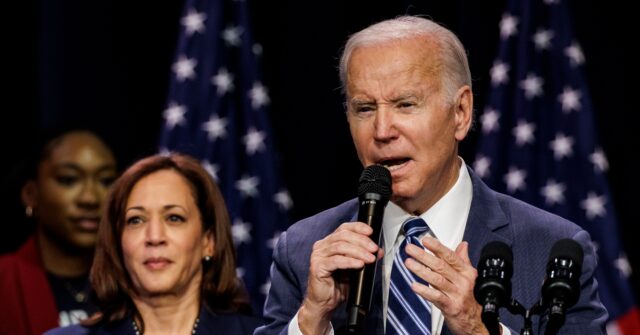Former CNN political commentator Chris Cillizza has voiced concern over President Joe Biden’s recent remarks that labeled supporters of Donald Trump as “garbage,” suggesting that this statement poses significant challenges for Vice President Kamala Harris’s presidential campaign. Cillizza referred to Biden’s comments as an “absolute nightmare” for Harris’s strategy as they overshadow her recent speeches and campaign efforts. The connotation of Biden’s remarks is alarming, particularly given the heightened political tensions in anticipation of the upcoming election, highlighting how incendiary language can backfire in an already polarized political landscape.
Biden’s comments were triggered during a rally for Trump, where comedian Tony Hinchcliffe humorously compared Puerto Rico to the Pacific Gyre garbage patch, likening the territory to a “floating island of garbage.” In response to this joke, Biden dismissed Trump’s supporters by declaring, “The only garbage I see floating out there is his [Trump’s] supporters.” The analogy has swiftly drawn comparisons to Hillary Clinton’s infamous “basket of deplorables” comment from the 2016 election, which also faced considerable backlash. These words from Biden evoke strong reactions, suggesting they could similarly alienate voters and detract from the unity often sought by Democratic candidates.
The backlash to Biden’s comments has been swift and harsh, even within his own party. Pennsylvania Governor Josh Shapiro, a Democrat, swiftly distanced himself from the president’s statement, asserting that he opposes attacking supporters of either candidate. This reaction serves to underscore the potential ramifications of Biden’s phrasing; while it may resonate with certain portions of the Democratic base, it runs the risk of alienating moderate and undecided voters who are critical in key battleground states. The damaging effects of divisive language, particularly for candidates like Harris seeking to expand their appeal, cannot be overstated as they prepare for an election cycle charged with animosity and skepticism.
In an attempt to manage the fallout from Biden’s comments, the White House issued a clarification, suggesting that the president was referring specifically to Hinchcliffe’s joke rather than making a sweeping condemnation of Trump’s supporters. However, this explanation has been met with skepticism. Cillizza highlighted the flaws in the administration’s narrative, particularly the apparent misinterpretation of what Biden actually said. Critics have pointed out that such attempts to reframe the comments can undermine the credibility of the White House and further complicate the political climate, particularly for those seeking to rally support around Harris’s campaign.
Moreover, CNN host Kaitlan Collins expressed doubt concerning the White House’s attempt to downplay Biden’s comments, noting that the audio evidence does not align with their interpretation. The difficulties surrounding the clarity and intention of Biden’s statements have exacerbated the situation. As the narrative shifts focus from the issues at hand to the implications of this verbal misstep, the urgency for the Biden-Harris campaign to emphasize unity and newsworthy accomplishments becomes increasingly pressing. The distractions caused by inflammatory statements may drown out the campaign’s messaging, hampering its overall effectiveness.
In conclusion, Chris Cillizza’s commentary on Biden’s “garbage” remark encapsulates the precarious nature of political discourse in the current climate. As increasingly polarized sentiments take center stage, the words used by political leaders can have profound implications on their party’s standing and the success of their campaigns. The scrutiny surrounding Biden’s comments not only highlights the challenges Vice President Kamala Harris faces but also reflects a need for cautious and strategic communication as both parties grapple with an evolving electoral landscape. The repercussions of this incident may linger, influencing not only the dynamics of the current campaign but the broader political narrative as the country heads towards the next presidential election.

